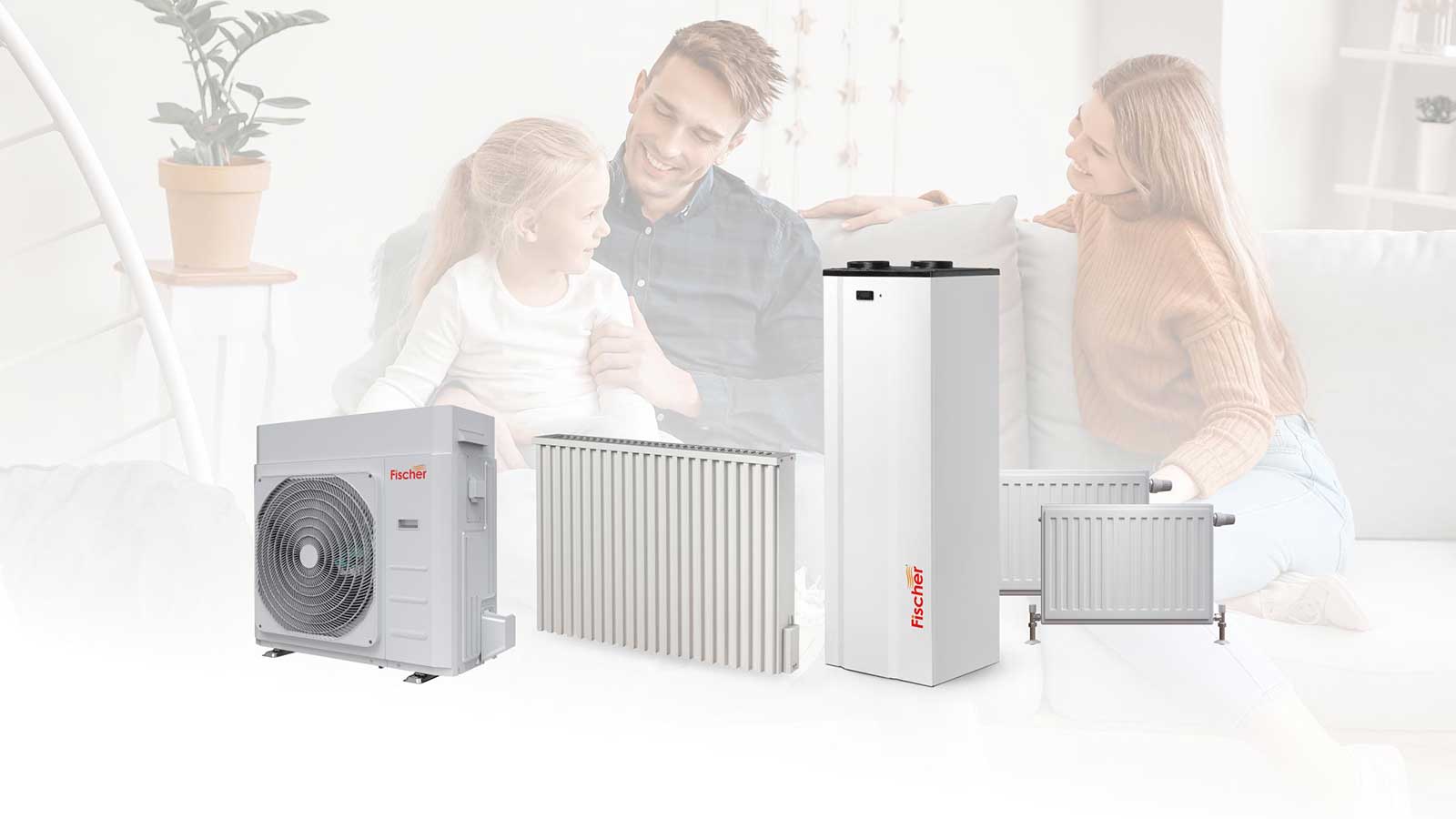If you’re researching gas alternative, low-carbon heating options, you’ve likely come across air source heat pumps. With many renewable energy heating systems to clue up on it can be tricky to know where to start: you might be wondering how heat pumps fare against other electric heating systems, and whether you should choose one over the other.
With grants for heat pumps available covering £7,500 of the cost, they’re an attractive, clean energy heating system if you’re looking to reduce your utility bills, or are updating an old system for a more sustainable option. This guide will help you understand how air source heat pumps work and how integrating them with electric heating sources can improve your home’s carbon footprint.
What is an air source heat pump?
An air source heat pump (also known as an air to air heat pump) uses natural heat from the air outside and transfers it indoors to warm your home and provide hot water. They work a bit like a fridge, but in reverse. Instead of moving heat out of something to keep it cool (like a fridge does), it pulls heat from the air outside and moves it into your home.
How does an air source heat pump actually work?
Put simply, here’s a step by step explaining how air source heat pumps work:
- The air source heat pump system uses a special liquid refrigerant that, due to its low boiling point, turns into gas when it warms up
- The refrigerant absorbs heat from the outside air, even when it feels cold outside – heat pumps can operate in external temperatures as low as -20c
- Once the gas warms up, it’s then compressed back into a liquid, which makes it even hotter
- The heat is transferred into your home’s central heating system to warm water that flows through the pipes and radiators
- The refrigerant in the heat pump passes through an expansion valve, cools down and turns back into a liquid, starting the cycle again
Compared to systems like a gas boiler, rather than generating heat by burning fuel, an air source heat pump uses existing heat from the air outside, making it a clean, energy-efficient way to heat your home.
A heat pump runs entirely on electricity and can be installed in most types of properties which have space outside, making it one of the easiest ways to cut your carbon footprint.
The benefits of an air source heat pump
With the cost of investing in a heat pump made more affordable by the Boiler Upgrade Scheme (please note, the Government grant excludes hybrid set ups), you can focus on the range of environmental and practical benefits an air source heat pumps provides:
- Reduces your carbon footprint. Since they use existing heat from air outside, there’s no burning of fossil fuels (like you would to produce gas)
- Lowers your energy costs. A heat pump relies on electricity to power it, but as the system needs less power to run, it should decrease your energy bills – in fact air source heat pumps are three times more energy efficient than a gas or oil boiler
They’re compatible with energy-efficient heating systems. If you’re thinking about updating your entire home heating system to a low-carbon alternative, heat pumps can be seamlessly integrated with our electric radiators and electric boilers for a complete, all-electric home heating solution
Reasons why an air source heat pump may not be suitable?
If you’re thinking of changing your home’s current heating system, depending on the size of your property and the quality of insulation, investing in direct electric heating may be more suitable.
- You may have limited space. If you have a small home, electric heating (like radiators or electric boilers) may be most cost-effective and provide targeted heating for smaller spaces
- Inadequate insulation. If your home is poorly insulated, air source heat pumps will lose their efficiency as heat will escape quickly through walls, windows, or floors. As a result, your home may struggle to retain the warm temperature, which is where direct heat from an electric heater could be more beneficial
- Infrequent heating required. If you only need to heat your home or property occasionally (e.g., you own a holiday home or spend a lot of time away), an electric heater may be cheaper and simpler to run, since heat pumps are designed to operate continuously for maximum efficiency
Why pairing a heat pump with electric heating gives you the best of both
One common heating misconception is that air source heat pumps completely replace electric heating. In reality, the two types of low-carbon systems work brilliantly together as a hybrid electric heating system.
Here’s some of the most common ways homeowners use both types of systems:
- The heat pump handles the heavy lifting: Use your air source heat pump as the main heating source, while leaving room-by-room heating control to your electric radiators
- Heat rooms with precise temperature control: Heat only the rooms you need to keep warm utilising wireless electric thermostats, ideal for large homes or a busy household moving in and out of different rooms
- Create a complete renewable energy home heating system: Paired with solar panels, a heat pump and electric heating means you can rest assured your home is running entirely on zero-carbon energy sources
Finding the perfect balance between heat pumps and electric heating
Making the move to a greener home can feel like a big decision, but with the right guidance it doesn’t have to be complicated. With the Fischer team at your side, switching to an air source heat pump and modern electric heating can be simple, efficient, and completely tailored to integrate with your existing home heating set up.
To make that process even easier, we’ve even created a Heat Pump Package, including everything you need for a future-ready, low-carbon home: a Dual Hot Water System, and our innovative 40mm HeatCore Radiators.
If you’re ready to install a renewable energy-efficient electric heating system into your home, get in touch for a free consultation: we’re here to guide you every step of the way.
- The Rise in UK Gas Prices (Again!) and What It Means for Homes - February 23, 2026
- Should you leave the heating on while you’re away for Christmas? - December 19, 2025
- Hosting Christmas: How to Heat a Busy Home Efficiently - December 15, 2025

